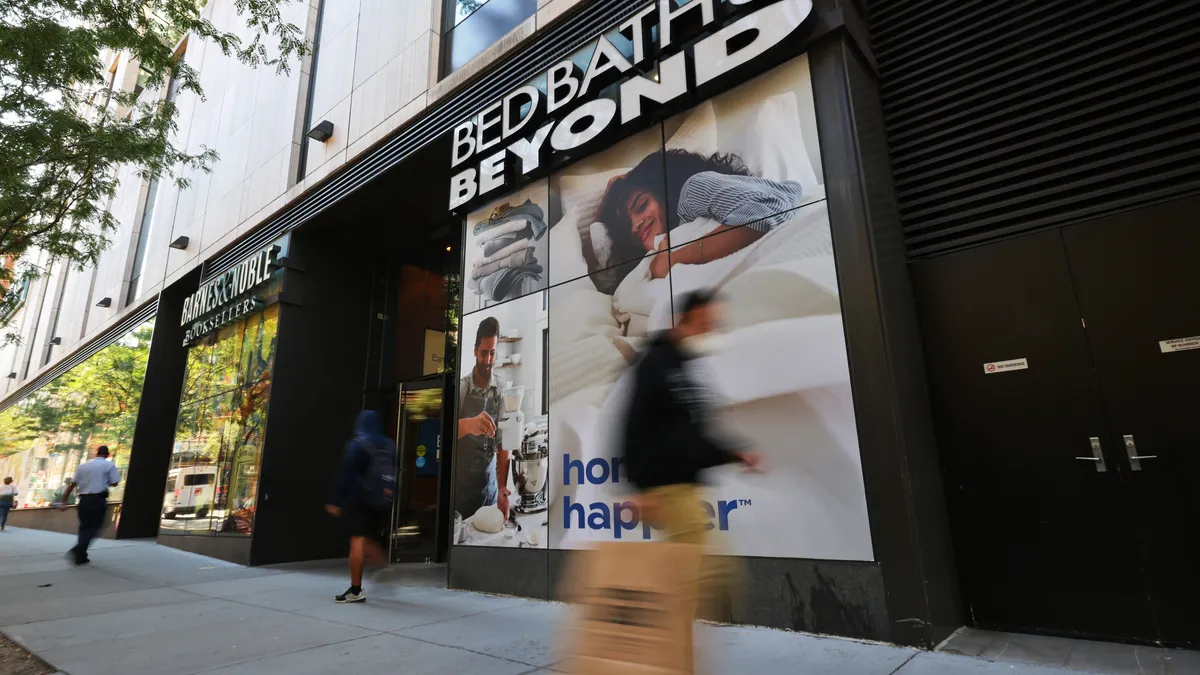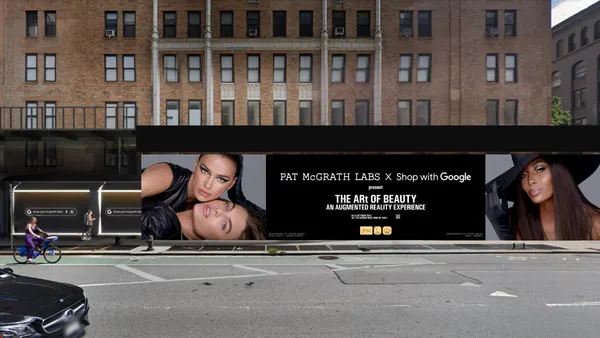This year could be considered the year the circular economy really took hold, particularly the resale space, and a major force leading the charge was e-commerce platform ThredUp.
Resale grew 21 times faster than the apparel market over the past three years, by ThredUp's own measures. The resale platform also projects the market to grow from $24 billion to $51 billion by 2023.
The general acceptance of resale is growing. ThredUp found that 64% of adult women have bought or are willing to buy secondhand products, though millennials are the most likely to forego buying brand new products.
When CEO James Reinhart founded the company in 2009, he sought to solve a problem he experienced himself: not wanting to wear anything in his own closet.
In the early days after ThredUp's launch, "consumer acceptance was very, very strong," President Anthony Marino told Retail Dive in an interview.
As consumers become more environmentally conscious, the circular economy may prove to be a particularly viable model. According to an OC& C Strategy Consultants study, 15% of Gen Z respondents said they're dedicated to "reducing the amount of waste I create," also citing reduction of carbon footprint and single-use plastic as important to them.
ThredUp, which sells brands ranging from American Eagle Outfitters to Burberry, may prove to be a beneficial partner to many retailers. A separate report from Accenture Strategy and Fashion For Good found that recommerce operating margin for the luxury, premium and mid-market sectors was 39%, 28% and 22%, respectively.
"Resale and retail working together is the future of fashion."

James Reinhart
CEO, ThredUp
In August, ThredUp announced a partnership with Macy's in which it would sell used apparel in 40 of the department store's locations. And just one day later, J.C. Penney said it inked a deal with ThredUp to begin selling secondhand women's fashion in 30 stores.
"We've seen that secondhand product in stores drives foot traffic, inspires brand loyalty, and attracts a younger, eco-conscious shopper," Reinhart told Retail Dive in an email. "There is a lot of value for retailers in partnering with resale, but there's also a lot in it for thredUP. These legacy retails have massive store footprints that introduce thredUP to new customers in over 100 partner locations — something we could never have done as quickly on our own."
Though department stores may seem like an unlikely match, according to ThredUp's own data, one-fourth of department store shoppers also indicated they buy used goods. And to the benefit of department stores, the partnerships could drive increased store traffic from younger, more environmentally conscious shoppers.
"The secondhand shopper isn't some niche ... it isn't somebody else's customer," Marino said. "It's really everyone's customer and so it was really driven by the customers wanting to see the product [in stores.]"
Analysts seem to agree that the partnerships are strategic for the resale platform. "It's the opportunity to grow quickly and gain a terrestrial presence for short money," RSR Research's Paula Rosenblum told Retail Dive in an email. "ThredUp gets traffic, the opportunity to become better known, and to show it can sell better for less."
More recently, the platform announced a partnership with J.Crew brand Madewell. The program, dubbed "Madewell Archive," offers secondhand jeans for $50 a pair. The products are available in Austin, Chicago, Nashville, New York, and Glendale, California.
ThredUp recently secured $175 million in an August Series F funding round led by Irving Investors and Park West Asset Management, pushing the company's pre-money valuation to $495 million, according to Pitchbook information emailed to Retail Dive. ThredUp plans to use the funds to grow its online platform, build new distribution centers and forge new retail partnerships.
"We are laser focused on expanding our infrastructure, creating the best experience for our customer, and powering resale for retailers," Reinhart said. "Resale and retail working together is the future of fashion."
As the resale space gets more saturated with competition — even the Kardashians threw their hats into the ring in October with the launch of "Kardashian Kloset" — ThredUp is staying true to its values: advocating on behalf of the circular economy.
"Our vision is a world where we reuse more than we produce new," Reinhart said. "There are enough clothes on the planet, and we’re on a mission to cut the waste by inspiring a new generation to think secondhand first."



 Read more
Read more










